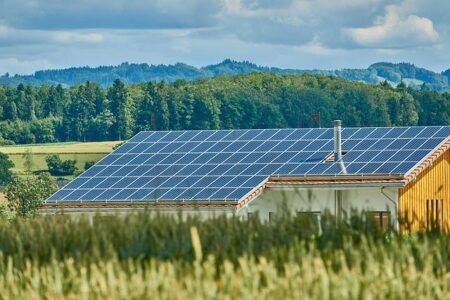French energy giant EDF is set to reduce its presence in Brazil, marking a significant shift in its Latin American strategy. According to reports from LatinFinance, the company plans to scale back operations amid evolving market conditions and strategic priorities. This move highlights the challenges faced by multinational utilities navigating regulatory complexities and competitive pressures in the region.
EDF Reduces Operational Scope in Brazil Amid Strategic Reassessment
EDF has initiated a significant reduction in its operational footprint across Brazil, marking a pivotal shift in its global strategy. This move is part of a broader reassessment prompted by evolving market conditions and the company’s strategic priorities. The decision will see EDF divest certain assets and scale back investments, particularly in regions where regulatory complexities and economic volatility pose heightened risks. Industry analysts note that this recalibration is aimed at concentrating resources on more profitable and stable markets, while optimizing the group’s overall portfolio.
Key aspects of EDF’s recalibration in Brazil include:
- Asset divestitures: Sale of non-core hydroelectric and thermal power plants.
- Operational streamlining: Reduction in project development activities and workforce realignment.
- Strategic partnerships: Exploring joint ventures to mitigate exposure while maintaining market presence.
| Segment | Operational Change | Impact Timeline |
|---|---|---|
| Hydroelectric | Partial asset sales | Q3 2024 |
| Thermal Plants | Closure of select facilities | End 2024 |
| Renewables | Focus on partnerships | Ongoing |
Impact of EDF’s Retrenchment on Brazil’s Energy Sector and Market Dynamics
EDF’s decision to downscale operations in Brazil marks a significant shift in the country’s energy landscape. As one of the key foreign investors in Brazil’s power sector, EDF’s retreat creates a vacuum that local companies and other international players are poised to fill. The move could accelerate the diversification of Brazil’s energy matrix, potentially favoring renewable sources such as solar and wind, which have been gaining traction amid growing environmental concerns and regulatory incentives. However, uncertainties around project timelines and financial commitments might temporarily slow down some ongoing developments, affecting supply stability and investor confidence.
Market dynamics are also expected to shift notably in the near term. EDF’s withdrawal could lead to:
- Increased competition among domestic firms aiming to capitalize on enlarged market shares.
- Higher demand for strategic partnerships, as smaller operators seek capital and technical expertise.
- Potential price volatility, especially in wholesale electricity markets during the transition phase.
- Enhanced government scrutiny, urging policies to ensure energy security and sustain investment flows.
| Key Aspect | Before EDF Retrenchment | After EDF Retrenchment |
|---|---|---|
| Market Share of EDF | Approx. 15% | Significantly Reduced |
| Renewables Investment Momentum | Steady Growth | Potential Acceleration |
| Investor Confidence | High | Moderate Short-term Dip |
| Regulatory Attention | Standard Oversight | Increased Intervention |
Recommendations for Stakeholders Navigating EDF’s Shift in the Brazilian Market
As EDF scales back its Brazilian operations, investors and local partners must recalibrate their strategies to mitigate potential disruptions. Prioritize diversified investments to reduce exposure to EDF’s contracting presence, focusing on emerging renewable projects with local backing. Additionally, strengthening relationships with regulatory bodies and monitoring policy shifts will allow stakeholders to navigate potential market volatility more effectively. Maintaining flexibility in contract negotiations and exploring joint ventures with other multinational energy firms can provide a buffer against unforeseen changes.
For municipal and state-level governments, it is crucial to accelerate infrastructure development to attract new players eager to fill the void left by EDF. Implementing incentive programs for clean energy investments and streamlining licensing processes can foster a more competitive environment. Below is a strategic checklist designed for stakeholders aiming to adapt swiftly:
- Assess current portfolio risks linked to EDF’s market retraction
- Seek partnerships with diversified energy producers
- Enhance regulatory engagement to anticipate policy changes
- Invest in local workforce development to support new project pipelines
- Leverage government incentives to spur renewable growth
| Stakeholder | Recommended Action | Expected Outcome |
|---|---|---|
| Investors | Diversify energy assets | Mitigate financial exposure |
| Local Governments | Accelerate permit approvals | Attract new energy players |
| Energy Operators | Form strategic alliances | Expand project pipelines |
| Regulators | Enhance market transparency | Stable investment environment |
Closing Remarks
As EDF moves to reduce its presence in Brazil, the shift underscores the evolving dynamics within the country’s energy sector and the broader strategic recalibrations by multinational utilities. Market observers will be watching closely to see how this downsizing affects Brazil’s energy landscape and the company’s future operations in Latin America. The developments signal a period of significant adjustment as EDF seeks to align its portfolio with changing economic and regulatory conditions in the region.



